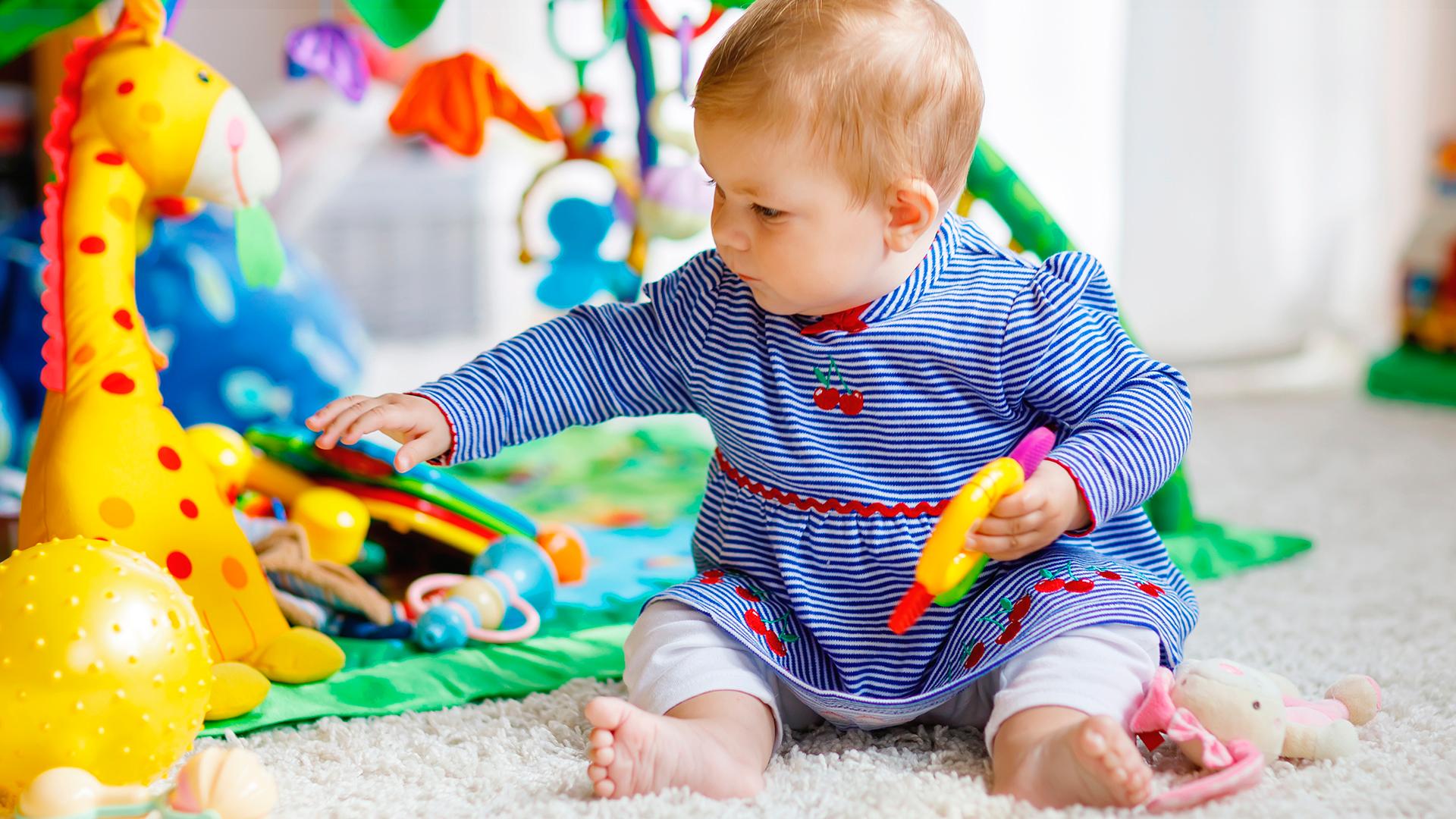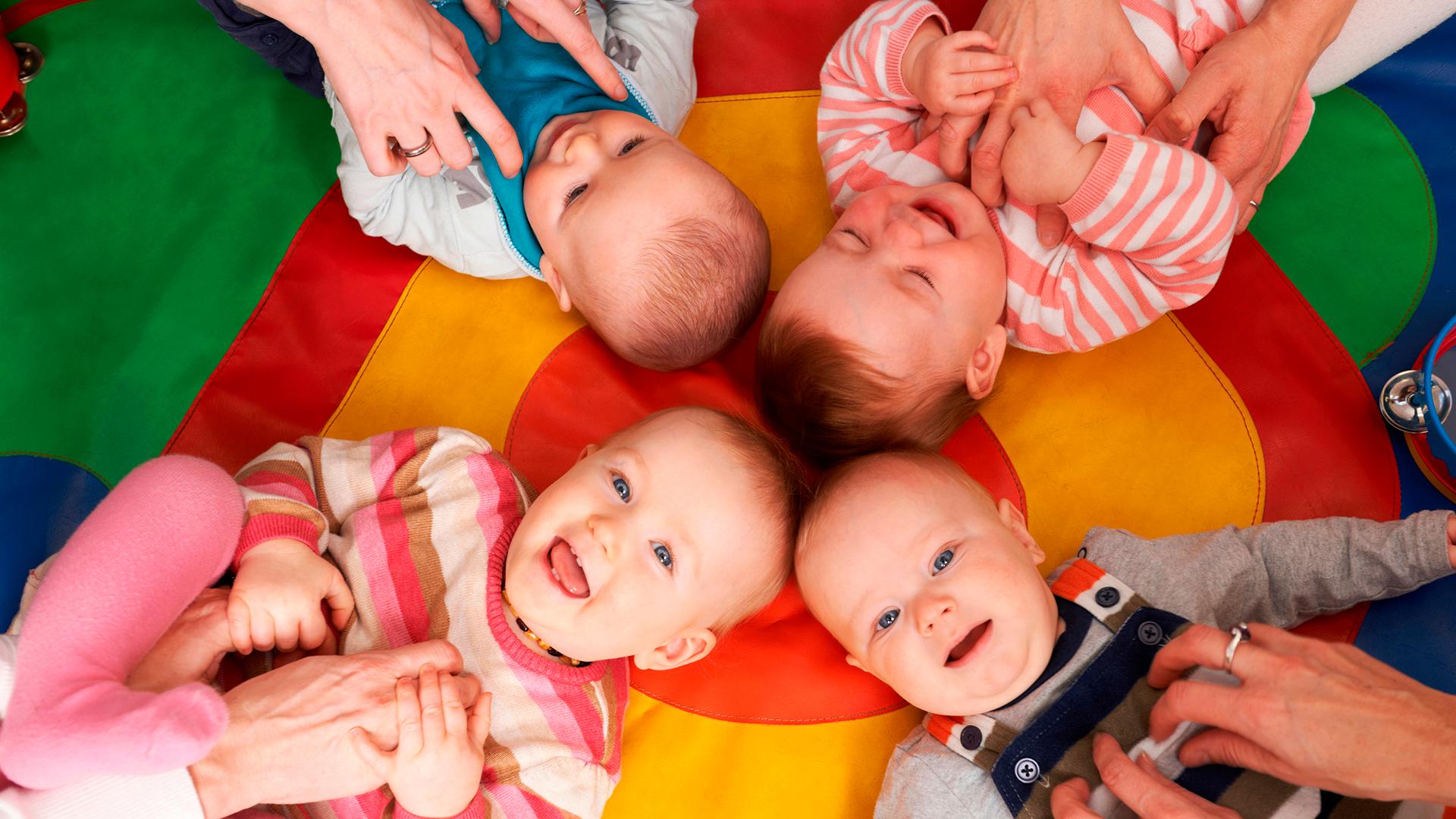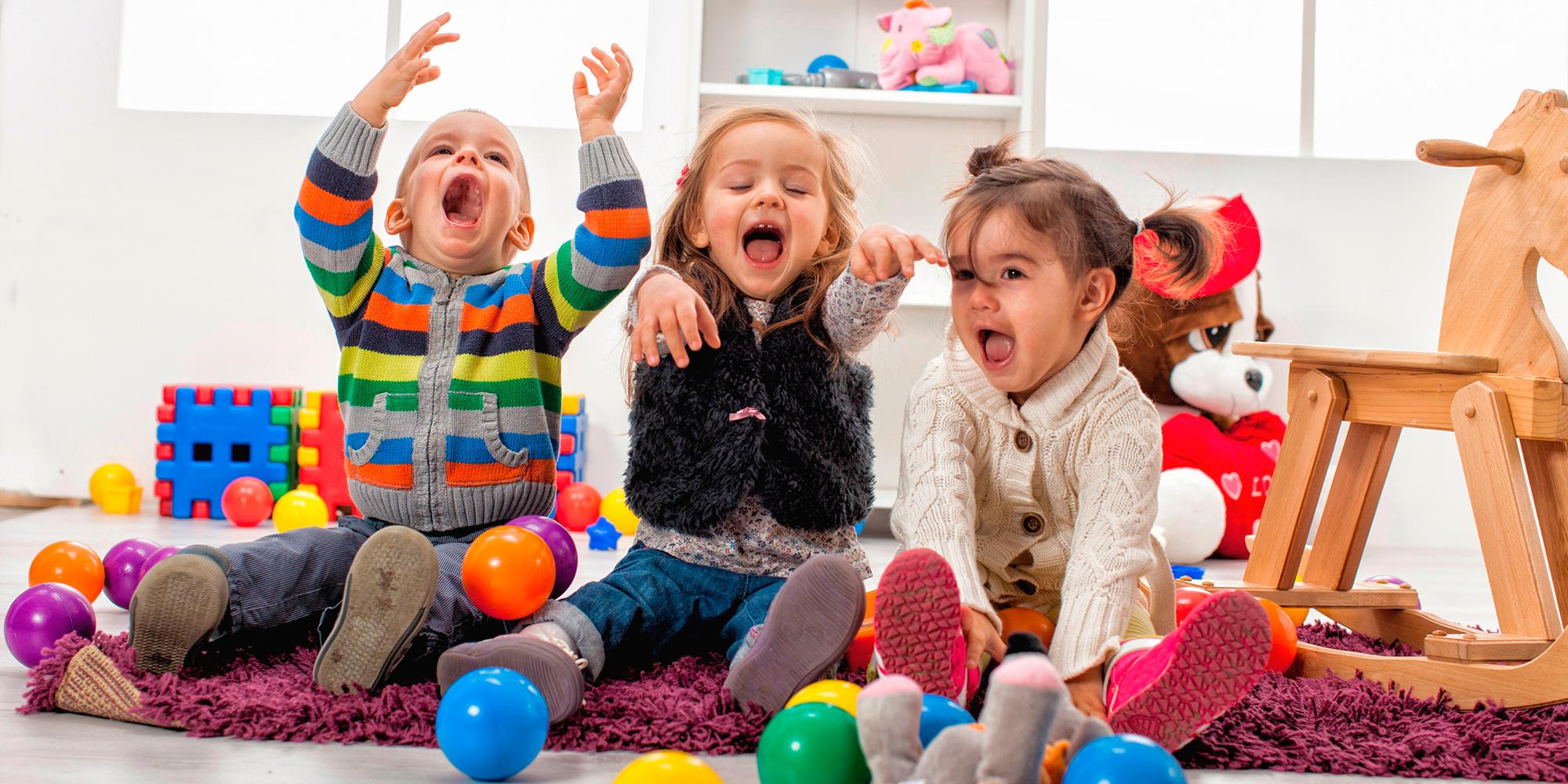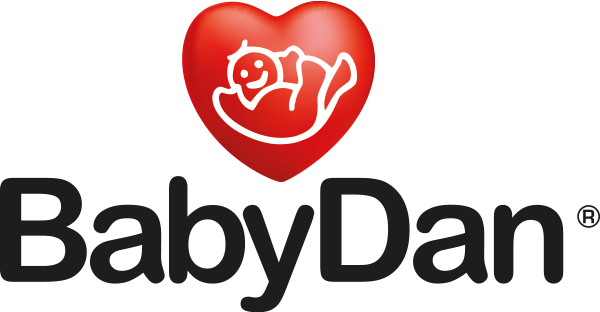It can be both a hectic and emotional time as maternity leave comes to an end and your little one starts in nursery or daycare. There are many things to keep track of as the new routines of everyday life may be turned upside down.
We want to help you give your child a good start in nursery or daycare, so we've put together some advice, tips and tricks, as well as a list of important items to bring with you when starting in the institution.
A good nursery or daycare start
Starting nursery or daycare can be an exciting and nerve-wracking process for many families. With a change in routine, you can expect reactions from both the child and the parents. How will it all go? How will the child react? - And what about the parents?
Some advice for a good start-up:
- Remember that any start-up takes time - Typically, the start-up itself takes 1-2 weeks, but it can take several months for your baby to get used to the new everyday life and to settle into the nursery or daycare. So be patient and give your baby extra attention and love if he or she seeks more security from you, is more tired or upset, or sleeps less well during this period. This is all natural and every child reacts differently. It's a good idea to let the introduction happen at your baby's pace and give him or her short days as long as possible. It's also a good idea to limit the amount of appointments and plans during the start-up period, so that there's plenty of time for the new routine to settle in for all of you.
- Make room for all emotions - When your child is starting in nursery or daycare it's also a new beginning for you as a family, and it's not just your child who has to get used to a new routine. Some parents will find it harder to let go and hand their child over to others, while others may find it a relief that they no longer have to take on the responsibility alone. Many will also experience both sadness and joy during this new period. This is natural, so make room for all the emotions - both the good and the difficult ones.
- Create a good "drop off routine" for everybody - During the start-up period, it's a good idea for only one parent to drop off the child, as it can be difficult to say goodbye to both mom and dad at the same time. A short, loving and clear goodbye can make the process easier for your child, but you should never leave without saying goodbye, as they need to learn that mom or dad is leaving but always will come back. Try to have a smile on your face when you wave goodbye, so your child can see that it's okay that he or she is going to nursery or daycare. Remember that your little one will usually be happy again as soon as he or she is occupied with something else.
- Build a good working relationship with the staff - To get off to the best possible start, it's a good idea to build a good working relationship with the nursery teachers. It's important that you as parents trust the staff and feel comfortable leaving your child in their care. When you have a good cooperation and relationship with the nursery teachers, you can get an even better insight into how your child's day has been and know both when things are going well and when they are difficult.
- Get an overview of what you need to bring - Before you arrive on the first day, it's a good idea to check with the nursery or daycare center, as what you need to bring varies from place to place. For example, some places want the child to sleep in their own pram or sleeping bag, and some require you to bring your own diapers, while others include them in the price. So before you buy a lot of stuff, ask what's recommended that you bring to the nursery or daycare.
The more practical stuff:
- Put a name on all your child's belongings - Clothes and equipment can quickly get lost, go home with other parents or end up in the "forgotten box" where no one knows who owns it. That's why it's a good idea to label all your child's belongings so that both parents and nursery teachers can keep track of them. For example, write on the tags on the back of the neck, on the laundry tag or on the inside of the item. There are several places online where you can order cute and fun name tags that are easy to attach and won't come off in the washer.
- Avoid cute accessories - Practical clothes are the main ingredient when packing for nursery or daycare. Hair bows, jewelry and cute little hair clips are not practical to wear when playing or romping around. They can get lost and, in the worst case scenario, be dangerous if your child or another child puts them in their mouth. So dress your child in practical clothes that allow for play, movement and dirt.
- Practical clothes instead of fancy clothes - In continuation of the above, it's best for your child to wear clothes that are allowed to break, tear or get dirty - because they most likely will.

What should I bring to the nursery or daycare?
When your baby starts in nursery or daycare, you'll need a lot of clothes and equipment that you may not have needed before. So what does your baby need? And what are you expected to bring? We've put together a checklist of things you often need to bring to the institution.
Checklist:
- Extra sets of clothes and underwear - It's almost inevitable that children get dirty during the day when playing in the sandbox or eating lunch. Accidents can also happen if the diaper is askew and, as we all know, children can suddenly get sick. So there are many good reasons to have extra sets of clothes for your little ones in case of an accident, so they quickly can get back into clean, dry clothes.
- Rainwear and rubber boots - With the current weather and climate, rainwear and rubber boots are a must. Rain pants with elastic straps and suspenders can reduce the risk of wet feet when splashing and playing in puddles.
- Snowsuit (or softshell suit) - If your child starts in nursery or daycare in winter time, a warm snowsuit is essential for outdoor activities, along with warm shoes, mittens, a scarf and a beanie. If your child starts in the summer, a waterproof softshell suit that can be worn over the clothes when it's not too hot can be an advantage.
- Slippers/prewalkers/slip-resistant socks - If your child can walk yet, it's a good idea to get some non-slip slippers or socks. This will help to reduce the risk of falls in fast-moving situations. If your baby is just starting to walk, the slippers should be completely soft and pliable with non-slip soles.
- Extra clothes for naptime outside - When it's time for napping outside, it's important to pack clothes for that too. Depending on the time of year, your child may sleep in their bodysuit and a small knitted sweater under the duvet. In the colder months, it's a good idea to bring a knitted or fleece sweater or a wool suit and warm socks, mittens and a beanie.
- Summer gear - It's important to keep the little ones safe when the sun is out. That's why it's a good idea to bring a sun hat and sunscreen when your child goes to the nursery or daycare in summertime. Many parents are asked to apply sunscreen to their child before dropping them off in the morning and then the nursery teachers reapply it at lunchtime or after naptime.
- Bedding - Some nurseries and daycare centers provide mattresses and duvets for bedtime, but want parents to wash their children's bedding themselves. Other institutions want you to bring a sleepsack, mat or a blanket.
- Teddy bear, blankie or pacifier - It can be difficult to fall asleep in new surroundings and without mom or dad to tuck you in. To give your baby more security during naptime, it's a good idea to let them snuggle with their favorite teddy bear, blankie or pacifier.
- Pacifiers (with your child's name on it) - Children don't necessarily care which pacifiers they brought from home. To avoid pacifiers being handed out left and right, most nurseries and daycare centers recommend writing names on them so that the nursery teachers can help keep track of them.
- Diapers - Many nurseries and daycare centers ask parents to bring their own diapers for their child. It's a good idea to bring a whole pack so you don't have to replenish your stock all the time. You may also need to bring wipes and diaper rash cream.
- Lunch box and water bottle - If the nursery or daycare doesn't have a meal plan, it's important to bring a good, sturdy lunch box for the child - preferably one with recognizable figures on it so the nursery teachers and children can tell the difference. Ask the nursery teachers how they prefer the lunchbox to be packed and if there are any sugar or dietary policies you need to be aware of.
- A backpack or a small bag for your child's things that you can use on the trip to and from the nursery or daycare - A small bag is especially handy if the nursery or daycare is going on an trip, but it's also good for collecting change of clothes, the child's homemade creations, notes from the institution, etc. It can also be a good idea to take all your child's clothes home on the weekends to wash them.
- Last but not least, we would like to emphasize once again that it's a good idea to write a name on your child's things! The alternative is most likely that you won't get all the items with you back home 😉

We wish you and your family a great nursery/daycare-start!

